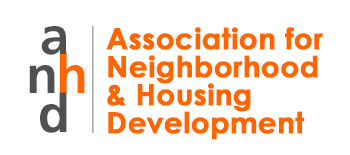Bodegas, Not Brodegas #StopBrodega
The recently reported business idea for Bodega (hereafter referred to as Brodega), a glorified vending machine aiming to replace the venerable New York institution, is not a bodega at all; it’s an engine for displacing hardworking business owners.
The awful irony of naming the company “Bodega” after the very brick and mortar institutions they aim to displace, to say nothing about the cat their logo is based on that will similarly be displaced, is offensive, utterly misguided, and frankly disrespectful to New Yorkers. But when the young, white founder is asked whether he’s worried the name Bodega might come off as culturally insensitive he says, “I’m not particularly concerned about it…We did surveys in the Latin American community.” Ignoring the fact that there is no such thing as a singular, “Latin American community,” it’s still an outrageous and revealing comment.
One can’t help but keep asking, Why? Why would you want to make bodegas a thing of the past? Why would you want to eliminate one of the pillars of New York City life? The existing landscape for small businesses is difficult enough as it is. In the same neighborhoods where Brodega hopes to cash in on the popularity of and need for actual bodegas, small business owners already lack basic rights and protections, making them susceptible to rising displacement pressures.
As New York State Coalition of Hispanic Chamber of Commerce Chairman Frank Garcia said, “Real bodegas are all about human relationships within a community.” Despite their extensive demographic and market research, the creators missed a crucial fact about New York City: you can mess with a lot here, but you can’t mess with our bodegas.
It’s true that Brodega is convenient. It’s a convenient way to ignore rampant displacement caused by luxury developments. It’s a convenient way to slip blinders on and avoid New York’s worsening inequality crisis and its disappearing small businesses. And it’s a nice and easy way for rich tech bros to avoid interaction with the plebes and communities of color that are quickly – but apparently not quickly enough – disappearing from the City’s boundaries.
Brodega allows the new city dweller to automate and sanitize urban life, to live in the City without actually participating in its civic and cultural life aside from contributing to its disappearance. Never mind the lives of the immigrant and refugee service workers behind the counter who work 80 hour weeks, who brew the City’s morning cup of coffee and wrap up our life-sustaining egg and cheese on a roll. Or the lives of the young parents who rely on the bodega because the owners give them food on credit when they can’t afford it, or the senior citizens who use the space as a community center and act as a de facto neighborhood watch. There’s little need for such a community safety net when that community ceases to exist.
New Yorkers know the difference between a vending machine and the real thing. The bodega is part of New York’s culture. Trying to replace the bodega with a glorified vending machine is like trying to replace the Empire State building with a low-rise strip mall.
We should be looking at ways to sustain and strengthen our bodegas and small businesses, not developing ways of getting rid of them. Why? Because communities are not just where people sleep and get their mail. They are where people live. Bodegas and small businesses are such a crucial part of the urban experience that you’d be hard pressed to find a New Yorker who hasn’t stopped in for a sandwich, milk, or conversation with the business owners who are just as part of the neighborhood as the people who live there. They are a crucial part of life in this City. Their owners and workers are our neighbors and our fellow New Yorkers.
When small businesses, especially bodegas, are displaced, New York’s culture is displaced. And we (and our bodega cats) won’t stand for that.
Lena Afridi, Policy Coordinator for Equitable Economic Development
Armando Moritz-Chapelliquen, Campaign Coordinator for Equitable Economic Development
 ANHD 2016 Building the Community Development Movement
ANHD 2016 Building the Community Development Movement
